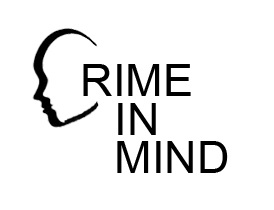Applications are invited to support people who have already completed some early work towards major research development proposals in the field of offender mental health and need to complete further specific work streams on a pathway to a substantive application for major funding or research group consolidation.
Up to £5,000 will be offered to successful applicants / applicant groups to support such intermediate work. People from any relevant clinical or non-clinical discipline may apply, but should be able to show explicitly multi-disciplinary and/or multi-agency partners as co-researchers and/or reference group. Consultation or partnership with people with lived experience of using the services should have been considered and if not feasible reasons should be explicit.
Applications must include specific aims and objectives or research questions and show that specified outcomes are deliverable within 12-24 months of the award. At that time, the successful applicant(s) will also be asked to present a pre-report Crime in Mind webinar in order to generate discussion and planning for further research in this area.
Details for prospective applicants
- Administrative
The research must be conducted within the framework of a professional organisation used to administering research, such as a university department, healthcare trust or similar established body. Funds granted will be paid through such an organisation rather than directly to the individual.
Charity Commission approval for Crime in Mind means that we cannot support applications that are wholly from outside the UK. The lead applicant must be UK-based and the funds paid through a UK based organisation. Overseas partnership is, however, welcome.
Insofar as ethical approval is required for the work, this must be obtained before the grant is released. If ethical approval is not required, the applicants should indicate that, with reasons.
- Application form guidance
Proposals should be in two parts to facilitate blind assessment.
Document 1: Applicant’s/ applicants’ name(s), qualifications, current position, work affiliations and address, including email address, followed by a brief outline of relevant skills or experience for the research proposed (guide 500-1000 words + details of any relevant publications).
Document 2: The core proposal should be up to 3,000 words (excluding titles, abstract, references and details of funds required).
This core proposal should include a brief abstract in lay language (guide 250-500 words), then a more detailed rationale for the work, clear research question(s) or titles of task(s), proposed methods and anticipated deliverable outcomes. There should also be a statement of what the applicant(s) consider their work will add to what is already known or possible and an outline of likely next steps. They should indicate how they propose to disseminate the work.
In addition, there should be an outline of how the money would be spent to achieve the aims – indicating anticipated distribution of costs for personnel, meetings, equipment and/or travel separately (without reference here to a specific institution).
Reviewers will be asked to pay particular attention to evidence of need for this research developmental step in this area, the clarity of the research questions and/or tasks, the robustness of proposed methods and national and international implications. In research development of this kind, the ‘end product’ may be evidencing a necessary platform or stage in the research, but applicants should also consider whether the nature and likely quality of the work or one or more of its components is likely to be publishable in a peer reviewed journal
Regardless, successful applicants will be required to produce progress reports at agreed intervals and a final report or summary report for publication on the Crime in Mind website.
Deadline for applications: 31st December 2024
To register your interest please email research@crimeinmind.co.uk.

